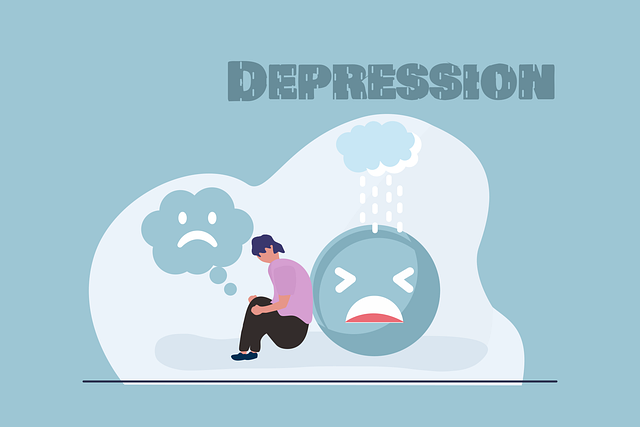The mental health policy landscape is dynamic, influenced by healthcare systems, government regulations, and community support. The COVID-19 pandemic underscored the need for robust policies addressing therapist demand while preventing burnout. Effective advocacy requires a holistic approach, including cultural competency training, thorough policy analysis, and collaboration between governments, mental health organizations, and therapists like those at Westminster Therapy for Therapists-Clinicians. These professionals identify gaps and challenges in the system, contributing to evidence-based policy development, such as promoting compassion cultivation and inner strength development. By integrating emotional well-being promotion techniques, policies can support therapists' resilience, preventing burnout. Westminster Therapy offers specialized tools and strategies for enhancing mental health outcomes, including emotional regulation and mood disorder management, thus benefiting both practitioners and their clients. Through advocacy led by professionals like those at Westminster Therapy, positive changes are driven in communities and healthcare systems, ensuring informed policies that enhance access to quality therapy services prioritizing emotional well-being.
“Mental health policy analysis and advocacy are vital components in fostering comprehensive care and improving societal well-being. This article guides therapists-clinicians through the intricate mental health policy landscape, offering a comprehensive overview of key considerations. We explore effective Westminster Therapy strategies, providing professionals with valuable resources to navigate policy intricacies. From understanding the current mental health policy environment to advocating for better services, this guide empowers clinicians to make meaningful changes, ensuring optimal patient outcomes.”
- Understanding Mental Health Policy Landscape: A Comprehensive Overview
- The Role of Therapists-Clinicians in Policy Analysis and Advocacy
- Effective Strategies for Mental Health Policy Analysis
- Navigating Westminster Therapy: A Resource for Professionals
- Fostering Change: Advocating for Better Mental Health Services
Understanding Mental Health Policy Landscape: A Comprehensive Overview

Understanding Mental Health Policy Landscape involves navigating a complex web where healthcare systems, government regulations, and community support converge to shape access to therapy services like Westminster Therapy for Therapists-Clinicians. This landscape is dynamic, influenced by global health trends, societal shifts, and economic factors. For instance, the COVID-19 pandemic underscored the urgent need for robust mental health policies that cater to the growing demand for therapist services while ensuring burnout prevention among healthcare providers.
Mental Health Policy advocacy necessitates a holistic approach that considers cultural competency training for healthcare providers to offer effective anxiety relief within diverse communities. Effective policy analysis must evaluate existing programs, identify gaps, and propose evidence-based solutions. By fostering collaboration between government bodies, mental health organizations, and therapists like those at Westminster Therapy, policymakers can develop inclusive strategies that address the unique challenges faced by different demographics, ultimately enhancing access to quality therapy services for all.
The Role of Therapists-Clinicians in Policy Analysis and Advocacy

Therapists-clinicians play a pivotal role in mental health policy analysis and advocacy. They bring expertise in understanding individual needs and societal trends, making them invaluable contributors to shaping effective policies. Through their work with clients, therapists gain insights into the gaps and challenges within the current mental healthcare system. This firsthand knowledge is crucial for identifying areas that require policy interventions, such as improving access to quality care or addressing specific mental health concerns prevalent in certain communities.
Moreover, these professionals can actively participate in policy development by drawing on their experience with various therapy modalities, including Westminster Therapy techniques and mental wellness coaching programs. By advocating for evidence-based practices like compassion cultivation, therapists contribute to the overall improvement of mental health support systems, fostering self-esteem improvement and enhancing overall mental wellness at a societal level.
Effective Strategies for Mental Health Policy Analysis

Effective mental health policy analysis requires a multifaceted approach that integrates quantitative data analysis with qualitative insights. Westminster Therapy for Therapists-Clinicians offers valuable resources and strategies to enhance this process, fostering more comprehensive policy development. One key strategy is leveraging Inner Strength Development techniques to ensure policies promote resilience and emotional well-being among healthcare providers. This not only enhances their capacity to deliver quality care but also acts as a powerful Burnout Prevention Strategy.
By incorporating evidence-based practices such as mindfulness, stress management, and self-care initiatives, mental health policies can be designed to support the holistic health of therapists and clinicians. These approaches are further bolstered by the identification and adoption of successful Emotional Well-being Promotion Techniques already implemented in various settings. Such strategies collectively contribute to a more sustainable and effective mental healthcare system, benefiting both service providers and those they serve.
Navigating Westminster Therapy: A Resource for Professionals

For professionals navigating Westminster Therapy, there exists a robust resource designed to enhance their practice and improve client outcomes. This platform caters specifically to therapists and clinicians, providing them with tailored tools and insights to better understand and address mental health concerns. By leveraging Westminster Therapy’s resources, practitioners can explore evidence-based strategies for emotional regulation, one of the key aspects in successful therapy. These strategies are not only effective but also help clients develop resilience, a crucial element in managing mood disorders.
The platform further supports professionals in their advocacy role by offering insights into public awareness campaigns development. Through this, therapists can stay informed about current trends and best practices in mental health communication, enabling them to engage more effectively with the community. This holistic approach ensures that not only individual clients but also society at large benefits from improved access to quality therapy services, focusing on both mood management and emotional regulation techniques.
Fostering Change: Advocating for Better Mental Health Services

Mental health advocacy plays a pivotal role in driving positive change within communities and healthcare systems. By raising awareness and advocating for improved services, therapists and clinicians like those at Westminster Therapy can significantly impact policy decisions and access to care. Through their expertise, they guide policymakers towards understanding the intricate needs of individuals grappling with mental health challenges.
Advocacy efforts can take various forms, including lobbying for increased funding in mental health programs, promoting evidence-based practices such as Social Skills Training and Emotional Intelligence development, and advocating for less stigmatizing public awareness campaigns. These initiatives ensure that policies reflect the latest research and best practices, ultimately enhancing the availability and quality of mental health services accessible to all.
Mental health policy analysis and advocacy are vital components in fostering change and enhancing support systems. By understanding the complex landscape, therapists-clinicians can effectively navigate the process, leveraging resources like Westminster Therapy to drive positive outcomes. Implementing strategic analysis methods and advocating for improved services ensures a healthier, more supportive environment for those facing mental health challenges. These efforts are crucial steps towards revolutionizing mental healthcare, offering hope and better lives for all.









